From Shawn: Today’s post comes from PDX Deals Guy who previously wrote about using the Amex Fine Hotels & Resorts program in Las Vegas. Today he is going to talk about ticket reselling for both a profit and as a method to manufacture spend. You can follow him on Twitter and look for the latest deals on his website.
This is part 2 of 2. You can find the first part here.
Tips, Tricks and Suggestions (continued)
Article by PDX Deals Guy
Cover photo by Amy Meredith.
Only the Best for Events! –
If you’re buying tickets to a concert or show, try to only buy tickets that are really good, or at least really good in their price category (such as the first row of the balcony at a lower price). If you can get tickets in the first few rows (or the best row of a cheaper price category), then you can often do quite well selling those tickets. Favor weekends over weeknights, as the difference in demand can be significant.
Don’t assume that BIG concerts or events are always the best. Sometimes box office prices on those tickets are too high to stand up in the secondary market (especially if you have to pay a VIP premium or it’s a weeknight!). If you can find great or unique seats for a semi-popular artist (who doesn’t charge big prices) in a venue that’s smaller than they should probably be playing, those are your ideal targets.
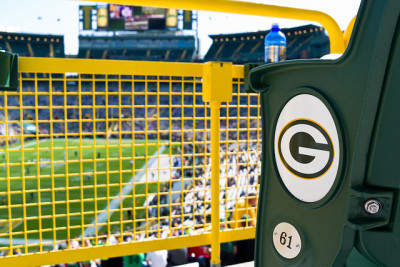
Cheaper is often Better for Sports –
While front row seats to a concert can be great, cheaper seats are often the way to go for season tickets to a sporting event. There’s usually a “sweet spot” to be found in the pricing chart for season tickets, at a place where the tickets are affordable enough for people to buy (take their family), but not so crummy that nobody wants to sit there! This takes some research and feeling out, but the key is that the most expensive tickets are usually not where the highest profit margin is found.
Those high price tickets also require a larger upfront investment in inventory costs for you, and are often very difficult to sell for anywhere near your cost for low-demand games. And when the playoffs (and other big games) roll around, you’d be amazed how people will “pay up” just to get “in the building,” whereas most buyers have a limit for just how much they can spend on premium seats.
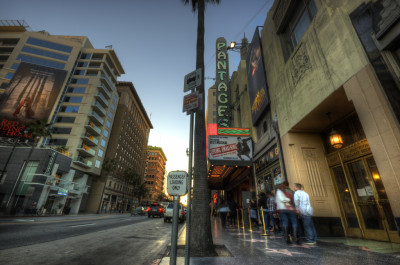
Buying Early is Good, but not always Best
Back in the good ol’ days, being the first person in line to buy event tickets (or being the first person “in line” online) was usually the way to get the best tickets. But these days the ticket sellers at the venues (usually through Ticketmaster or smaller competitors) have made it more of a “random” process. Some good inventory is sold during presales, and some is held back for the public on-sale date. You still tend to do best by being online RIGHT when the tickets go on-sale, but realize that the first tickets you are offered might not be the best available.
A good plan is to use multiple browsers (IE, Firefox, Chrome and incognito windows – as just using multiple tabs in a browser will NOT do the trick) and cycle through grabbing and releasing tickets until they offer you ones that you really want (think will be good to resell). But BEWARE, you can be tracked you by your IP address and too much grabbing and releasing can lead to you (and anyone else sharing your IP address!) being locked out for a day or so. Still, it’s worth the effort (in moderation) to get better tickets.
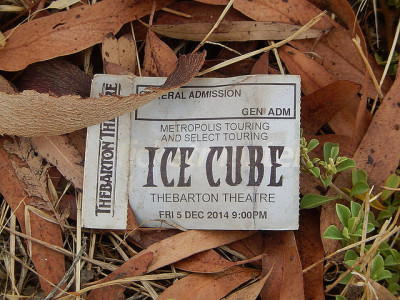
Don’t Wait to Sell
Don’t be fooled into thinking that tickets will become scarce closer to the event and you’ll get a big premium. It works out that way from time-to-time, but in most cases it goes the other way. Even if you leave some money on the table, you’re better off trying to sell sooner rather than later. It can be stressful and time consuming to move tickets on the day of the event. And as in the case in any reselling venture, the less time you have money tied up in inventory, the better.
You are NOT Alone it this! –
Never make the mistake of thinking you’re the only person doing this reselling. You are not and you will find this out quickly. Just because the lowest price on StubHub makes it appear that there’s a nice profit to be made, if others see this potential profit they will jump in and join you. If you haven’t done this before, you will be amazed how many tickets flood StubHub within hours after tickets going on-sale. That said, local knowledge about “hot” smaller artists in smaller venues can be very profitable due to lesser reselling competition and limited supplies.
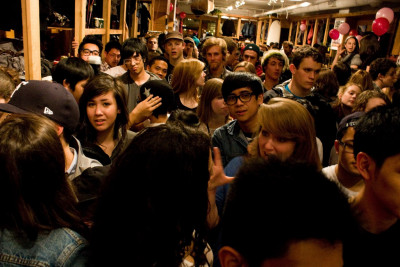
Keep Good Records of Inventory! –
This might go without saying, but it cannot be stressed enough. The easiest way to make a mistake and take a big loss is to forget that you purchased tickets to sell! Unlike most other reselling, the majority of tickets are electronic these days. So your inventory is not going to be staring you in the face, unless you help it to do so! I recommend using a Google or Excel Spreadsheet to keep a detailed running total of your inventory and profits, sorted by date of the event. Giving yourself calendar reminders is a good option too. Good records are obviously important for tax purposes.
You Will Make Mistakes! –
Ticket reselling is not easy. You will take some losses (sometimes even complete losses – although you certainly want to avoid those!) and you will occasionally spend more time and effort on selling tickets than you’d like. Hopefully those losses and investment of time will be more than offset by the profits and relatively easy sales. If it doesn’t, then this is obviously not something you want to pursue! If it does, you might just have found another tool in this hobby.
Ticket Selling Real World Example

This is not going to be as fun and informative as most of Shawn’s well-documented MS or Great Deals (Ninja Tricks) numerical examples. It is rare to find coupons or “deals” for event tickets (and if you do its probably a bad sign for demand!) and shopping portals typically don’t pay on the major ticket websites (at best 1%). There are some credit cards that pay bonus categories for “entertainment,” but the best recent example is Citi Premier and it unfortunately just went down from a 3x to 2x category. But buying tickets can definitely be a way to meet a credit card minimum spend.
Here’s the numbers (rounded) behind one recent “win” I had:
Example Event: Concert for a 80’s/90’s star (still rockin’ many years after Jack & Diane)
- Venue: Classic old concert hall that seats roughly 2500
- When: Mid-week show (not ideal!) in the summer of 2015
- Seat Location: Great (aisle!) seats the 1st row of the balcony
- Purchased: During a presale (many months before the event) for the venue’s free email list
- My Purchase price: $135 x 2 tickets = $270 (using a 3x Citi Premier category)
- Sold: A few months after purchase and few months before the event via StubHub
- Buyer Paid: $255 x 2 = $510
- StubHub Fees: roughly 25% x $510 = $130
- After-fee Sale Price: $510 – $130 = $380
- Dollar Profit: $380 – $270 = $110
- Percentage Profit: $110 / $270 = 40.7% (plus 810 Citi ThankYou points)
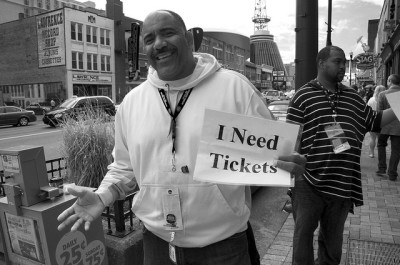
Conclusion
Finally, here are some very simplistic “quick stats” from my non-sports ticket reselling that you might find interesting (with a huge YMMV caveat; and another warning to start small, slow and local to determine whether or not this will work for you!).
I define a “win” or “loss” as a profit or loss of greater than $25 total for the 2 or 4 tickets I typically purchase (and ignore anything +/- $25). You will see the benefit I’ve observed from experience and working local.
- Win-to-loss ratio in first couple years, out-of-town events: 2.5-to-1
- Win-to-loss ratio in first couple years, in-town events: 3.2-to-1
- Win-to-loss ratio most recent couple years, out-of-town events: 3.4-to-1
- Win-to-loss ratio most recent couple years, out-of-town events: 5.0-to-1
I look forward to hearing about your personal experiences or any other comments. Thanks!
Post Script (written after reading through some comments on Part 1 of this post)
In retrospect, perhaps the MS aspect of the post should have been deemphasized or maybe even left out of the title. Reselling, in general, is a controversial and debated form of MS. Whether one is an eBay seller or is a major national retailer, the name of the game is always maximizing profits (and minimizing risk, most typically defined as losses, but also including the value of time and frustration!). As I have tried to highlight multiple times, ticket reselling is certainly not for everyone and has its risks. I could not possibly hit on every potential aspect of ticket reselling in this relatively brief beginner’s guide.
For example, I quickly glossed over the fact that most pro sports teams tickets should be avoided (due to poor supply/demand imbalance for most teams), and even in the good scenarios a lot of thought and research should go into finding the “sweet spot.” I also didn’t even touch on being very careful about (and probably outright avoiding) concerts such as the current Garth Brooks tour, where he is playing so many shows per city that there is huge supply. And most of the tickets are being sold in such a way that you need to have the credit card used to purchase the tickets physically present to get into the venue.




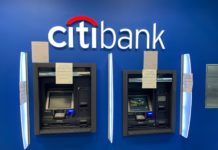

You sort of captured this in your epilogue, but what do you do when there are restrictions on using tickets (ie credit card must be present)? I still see those tickets for sale, so I’m not sure how resellers are getting around that.
What do you want to look for when deciding a credit card to use to buy the tickets in advance? Is there a certain card that everyone uses?
It should also be noted that StubHub reports $20K gross ticket sales per year to the IRS via 1099-K. So if your intent is mainly MS and to avoid additional taxes on your sales, then be mindful of that limitation.
That is true regarding the IRS reporting. I am certainly not giving tax advice, but if you’re making a profit selling anything, the IRS wants their cut.
What are your thoughts on buying VIP or Box Season Tickets to concert venues? Are these usually worth it? I’m thinking that you’ll probably make money on a lot of the shows, but invariably there will also be some losers.
Hi Stephanie – I think it’s very much a case-by-case situation. But you’re smart to realize that there will be losers.
Hey all, i’ve only been reselling tickets for about 1 week. In 1 week i have made a profit of just over $300 having only invested $400. Now that i have learned the basic ropes i have invested just under $2000 into ticketing. I find buying smaller event tickets which have limited seats available really drives up the price of the tickets. For example, there was a very famous and popular rapper who was having a concert in my area. Most of the concert was free standing general sale tickets, but there were around 30 seats on a balcony. These tickets sold for $48 each including fees and everything. Just 1 day after the presale these $48 tickets were selling for over $150, i haven’t sold mine yet as im being greedy and expecting prices to go sky high. Although i may be naive about ticket selling as i am so new, i am confident if you buy low enough for a popular even that profit will always be there. Plus i buy tickets for local events, if turns make for the worst i guess my friends and i are having a nice evening out!! Great last 2 post, really enjoyed reading them. Thank OP. Rob.
Got burned once by buying on presale 4 really good tickets to a legendary band playing in Chicago for one night only. Within a week they added 3 more nights in Chicago and supply outweighed demand. Wasn’t able to sell tickets but went to see show with friends instead so not a total loss, but something to be aware of when buying and reselling
You are right-on in this warning. And sorry to hear that was your experience. This is probably one of many additional things I could have said if I had more space. But it is a good point. About all I can say is that you can sometimes look at earlier stops on the artist’s tour to see if this commonly occurs. If it does, then you need to take it into account. But if the entire tour goes on sale the same day, you might not be able to. So it is definitely an ongoing risk factor. Thanks for your comment.
Coming up next: How to MS through forex trading and getting into precious metals.